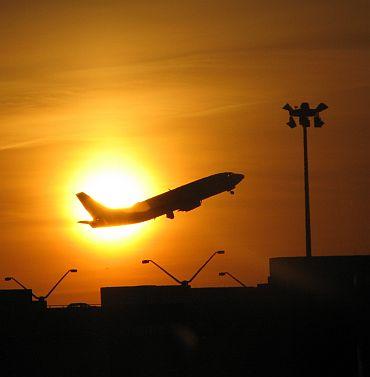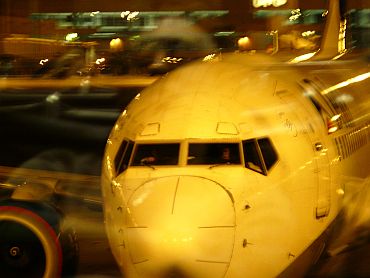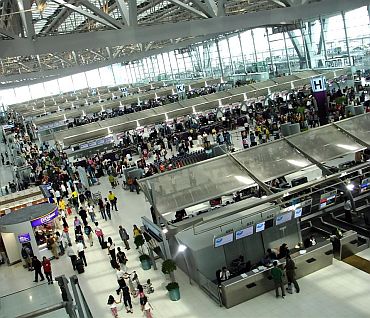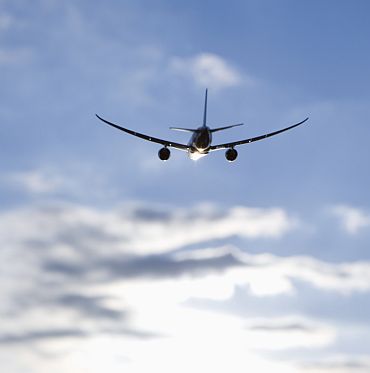 | « Back to article | Print this article |
Interpol revelation: Danger looming over air travel
In an alarming revelation that could send shivers down the spine of aviation security managers, Interpol has said about 40,000 people criss-crossed the globe with lost or stolen travel documents in the recent past.
"Terrorists and dangerous criminals continue to move from one country to another on stolen, falsified or lost documents," Interpol chief Ronald K Noble told PTI in an interview in Singapore.
Maintaining that the airline industry faced the "maximum threat" and "continues to be the prime target", he said, "Over past several months, we have scrutinised 490 million passports and identified about 40,000 such documents, which were lost or stolen. Travelling with such documents is the biggest threat (to aviation)."
Click on NEXT to read further...
Interpol revelation: Danger looming over air travel
These 40,000 travel documents belonged to 26 countries, which have since been informed by the Interpol, Noble said.
Asking the airline industry to "care more about stolen passports", he said criminals and terrorists who travel extensively "will continue to use stolen and lost passports to conceal their true identity until we plug this glaring security gap".
"Each government should focus on the non-nationals who want to come to their country. Visas should be issued after checking from the police (in the visitor's country). More information about people and their background should be collected (before giving visas)," he said.
Interpol revelation: Danger looming over air travel
Noble, first elected in 2000 as Secretary General of the International Criminal Police Organisation or Interpol, was here to attend the summit of the International Air Transport Association.
He was re-elected to the post last year to serve the third consecutive five-year term.
Noble refused to take any questions on major terror cases in India, including the 26/11 Mumbai attacks or the Purulia arms drop, saying he would not discuss any country-specific issue.
He, however, said there were a large number of "Al Qaeda-inspired groups" which posed the maximum level of threat to global security.
Interpol revelation: Danger looming over air travel
Asked whether Advance Passenger Information System (APIS) helped countering terror threats to aviation security, the Interpol chief asserted "definitely".
Under APIS, information about all passengers in an aircraft is onpassed to the destination country enabling the authorities to check the background of people slated to enter that country in a few hours.
"It will be cold comfort to airline passengers and citizens worldwide to learn that ten years after the attacks of 9/11 and almost 20 years after the first World Trade Centre attacks of 1993, we let one out of two international airline passengers cross borders without checking whether they are carrying stolen or lost travel documents," he said.
Interpol revelation: Danger looming over air travel
Noble said the prime aim of terrorists was to "find weaknesses" in the security system and stressed that governments should continue changing their parameters on a regular basis, depending on tactical intelligence received.
He also recommended additional security checks for passengers transiting through airports, while observing that travellers were not disturbed by security measures but by their "unfriendly" nature.
"Whenever attacks have been successful, it is because we collectively failed to collect, analyse and share the information we already had. And whenever attacks have been prevented, it is because we succeeded in exploiting the information available to us concerning a specific passenger, group or threat," the Interpol chief said.




